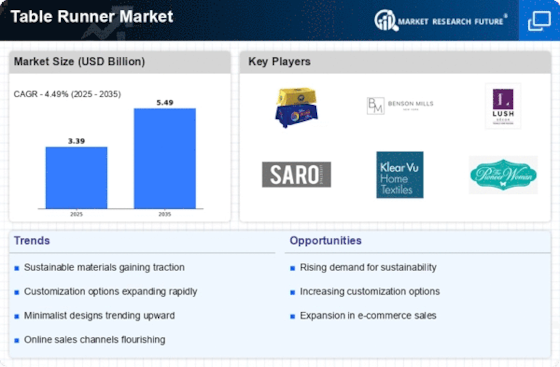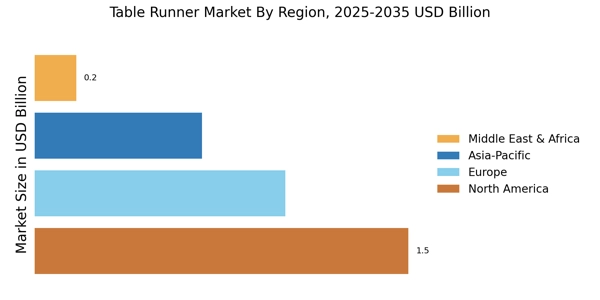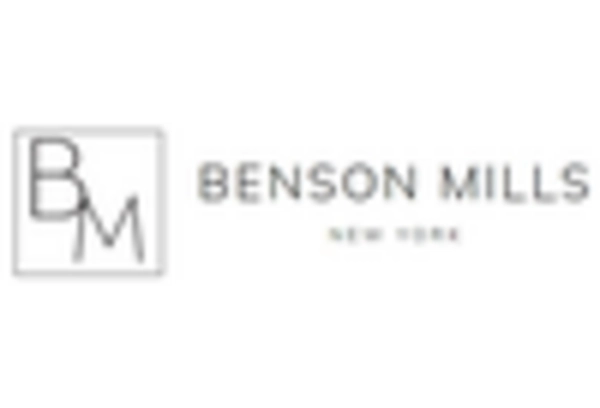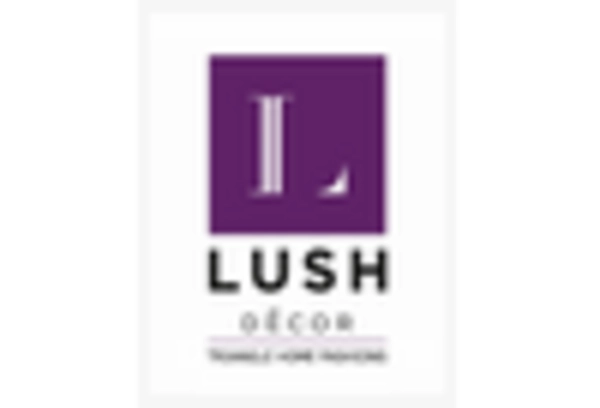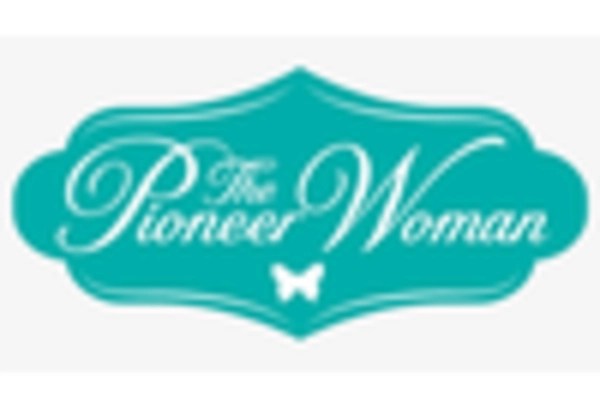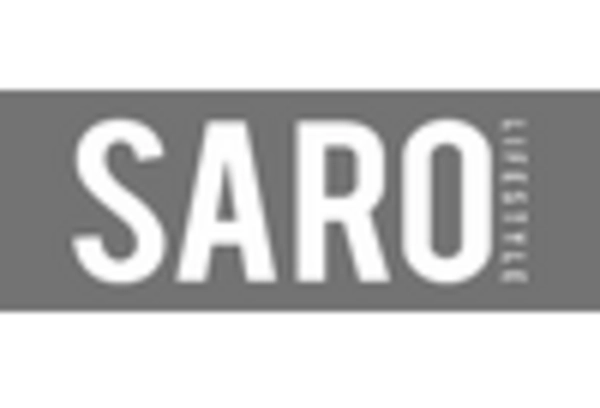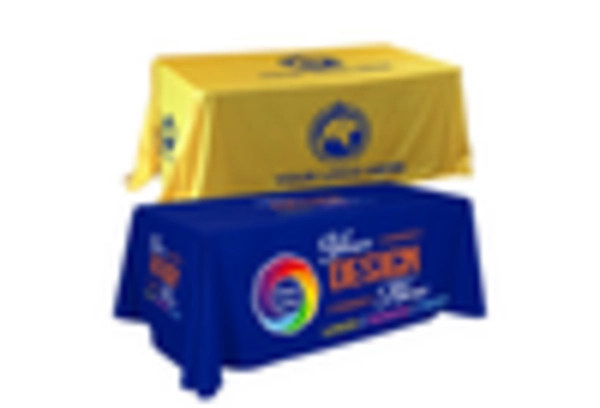Rising Demand for Home Decor
The Table Runner Market experiences a notable surge in demand as consumers increasingly prioritize home aesthetics. This trend is driven by a growing interest in interior design, where table runners serve as essential decorative elements. According to recent data, the home decor market is projected to reach substantial figures, indicating a robust growth trajectory. As households seek to enhance their dining experiences, the incorporation of stylish table runners becomes a focal point. This demand is further fueled by social media platforms showcasing innovative table settings, thereby influencing consumer preferences. The Table Runner Market is likely to benefit from this heightened interest in home decor, as more individuals invest in products that reflect their personal style and elevate their living spaces.
E-commerce Growth and Online Shopping
The Table Runner Market is experiencing a transformation due to the rapid growth of e-commerce and online shopping. With consumers increasingly turning to digital platforms for their purchases, the accessibility of table runners has expanded significantly. Recent statistics indicate that online retail sales are on an upward trajectory, suggesting a shift in consumer behavior towards convenience and variety. This trend allows consumers to explore a wider range of designs, materials, and price points, thereby enhancing their purchasing options. As e-commerce platforms continue to evolve, the Table Runner Market is likely to see increased sales through online channels, as consumers seek unique and stylish table runners that align with their preferences.
Increase in Dining Out and Entertaining
The Table Runner Market is positively impacted by the rising trend of dining out and hosting gatherings. As social interactions become more prevalent, consumers are inclined to invest in table runners that enhance their dining experiences. Data suggests that the food service industry is witnessing growth, with an increasing number of restaurants and cafes adopting elegant table settings. This trend extends to home dining, where individuals seek to replicate restaurant-style aesthetics. The demand for table runners that complement various themes and occasions is likely to rise, as consumers aim to create inviting atmospheres for their guests. Consequently, the Table Runner Market stands to gain from this cultural shift towards entertaining and dining, as more people prioritize the visual appeal of their dining environments.
Customization and Personalization Trends
The Table Runner Market is significantly shaped by the trends of customization and personalization. As consumers seek unique products that reflect their individual tastes, the demand for customizable table runners is on the rise. Recent market analysis indicates that personalized home decor items are gaining traction, with consumers willing to invest in products that resonate with their personal style. This trend is particularly evident in special occasions such as weddings and holidays, where customized table runners can enhance the overall aesthetic. As manufacturers and retailers adapt to this demand by offering bespoke options, the Table Runner Market is poised for growth, catering to a clientele that values distinctiveness and personal expression.
Sustainability Trends in Consumer Preferences
The Table Runner Market is influenced by the growing emphasis on sustainability among consumers. As awareness of environmental issues rises, individuals are increasingly seeking products made from eco-friendly materials. This trend is reflected in the demand for table runners crafted from sustainable fabrics, such as organic cotton or recycled materials. Market data indicates that consumers are willing to pay a premium for sustainable products, suggesting a shift in purchasing priorities. As manufacturers respond to this demand by offering eco-conscious options, the Table Runner Market is likely to witness growth driven by sustainability trends. This alignment with consumer values not only enhances brand loyalty but also positions companies favorably in a competitive market.
.png)

